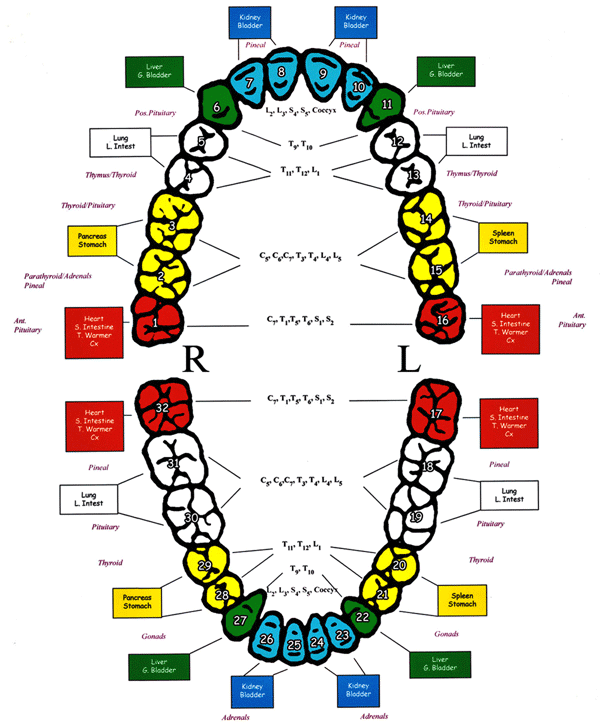679
The world of acupuncture is vast, and not many people have explored within it. You probably didn’t even know that each one of your teeth are connected to a certain organ!
Yes, every single tooth is connected to a separate part of the body! In fact, if the tooth becomes infected it is likely that the organ it is connected to is also suffering. Some of these infections can’t even be detected by x-rays! It also works the opposite way. If an organ is damaged or poorly functioning, the tooth it is connected to will also experience complications. If you have had recent mouth troubles you should go for a checkup!
Here is the Meridian Tooth Chart

- Pain in the upper and lower incisor indicates pyelonephritis, cystitis, or otitis
- Pain in the first incisor is a sign of prostatitis or tonsillitis
- If you experience chronic pain in the canine teeth, it is very likely that you are suffering from hepatitis or cholecystitis
- Pain in the premolar teeth can be a sign of allergic reaction, dysbactriosis, pneumonia, or colitis
- Pain in the fourth teeth (top and bottom) indicates elbow pain, colon disease, shoulder pain, knee pain, or inflammatory-related diseases like arthritis
- If you experience pain in the molars, it is very likely that you are suffering from anemia, gastric ulcer, chronic gastritis, duodenal ulcer, chronic pancreatitis
- Pain in the sixth lower teeth is a sign of atherosclerosis, vein-related problems and problems with the arteries
- Pain in the sixth upper teeth is usually linked to inflammation of the ovaries, thyroid gland, and spleen, sinusitis and pharynx diseases
- Wisdom teeth are associated with cardiac diseases, congenital defect and coronary heart disease
- Pain in the lower molars indicated varicose veins, polyps in the colon, or lung-related problems like bronchitis, pneumonia, asthma, and bronchial.